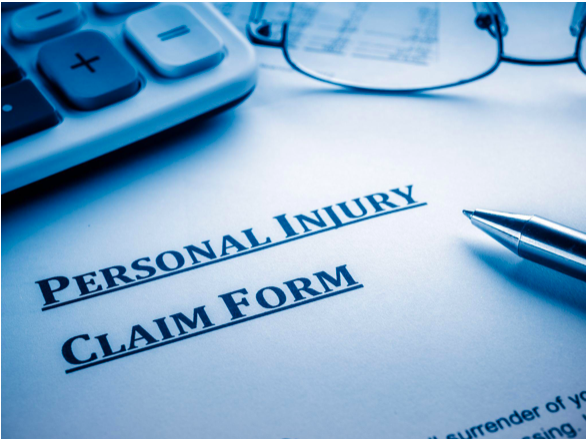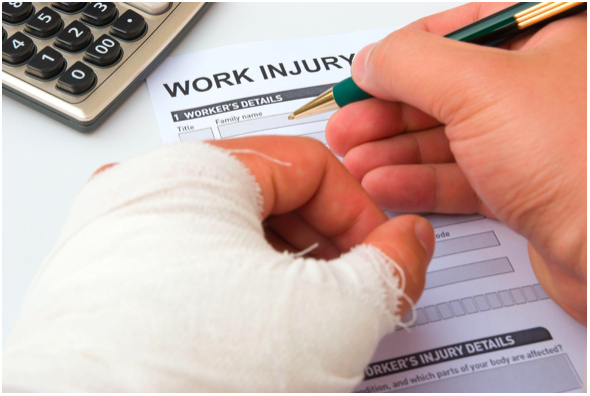World
What Happens in Your Personal Injury Claim After a Compensation Settlement?

Filing a personal injury claim with a trusted attorney is the first step to receiving compensation after an accident. As the legal case is being pursued, moving forward from there can be confusing if you don’t know what to do. Having a legal professional by your side will also increase your chances of winning the case. Read on to understand the process of a personal injury claim and what to expect after the settlement.
What Is a Personal Injury Claim?
A personal injury claim is a legal case filed by an individual, known as the plaintiff, who’s been injured as the result of someone else’s negligence, known as the defendant. This type of lawsuit is frequently filed by car accident victims when the accident has left them with injuries that negatively affect their quality of life physically and financially.
If this is your situation, then it’s advised that you contact an attorney to file your personal injury claim to seek compensation from the at-fault party. They’ll guide you on the entire legal procedure and how to get started on your case. Once your claim has been filed and your lawyer has met with the defendant, both parties can agree on the next steps.
Role of Insurers in a Settlement
How you were injured and whose fault it is plays a major role in what your settlement will be. Most often, the defendant is likely to be covered by an insurance policy. This coverage is most often used for injuries sustained by medical negligence or a workplace known as an occupational injury. For this reason, the personal injury reimbursement will be paid for by the defendant or the companies’ insurance provider.
Insurers of the person who injured you will also determine the compensation amount. They usually do this by adding up the cost of damages and multiplying it between one and five times the amount. The payout amount is then offered to you and your attorney to accept or negotiate. This is the crucial stage for insurance providers because they’re more willing to provide compensation and settle before the case can be taken to court.

Post-Settlement
What happens after depends on where in the legal process the claim ends. If the claim has been settled, then you’ll be asked to sign a few official documents that mark the end of the claim’s proceedings.
The documents needed to sign are frequently a settlement agreement. This is a type of contract that states the amount of money paid to you and the payment plan of the agreement. It also acknowledges that you accept the terms of your settlement and that the legal proceedings are over.
Take note that once you’ve signed this contract, it means everything is finalized and your claim is dismissed. After this, no more changes can be made, not even by your lawyer, so be sure to read through carefully and make sure all the information is correct.
The other type of document that could be presented to you is a liability waiver or liability release form. This is used especially by businesses after the payout of an occupational injury.
The liability waiver is essentially an acknowledgment releasing the defendant from the claims that you had brought against them. This is to ensure they can’t get sued for the same injury or for any future injuries that could happen by their fault. Signing this form is optional on your part and should only be signed after consulting your lawyer for advice. Your lawyer will then give all the relevant parties a copy of the contracts.
Endnote
What happens after your personal injury claim once you’ve been compensated is a matter of ending the legal process with official documents. These documents act as proof that the claim has been settled and that all parties agree to the terms of the contract.
On some occasions, particularly within a workplace injury claim, you may be approached to sign a waiver recognizing that you’re freeing the company from your claims and therefore can’t bring the same claims to them in the future. This type of contract is still fully your choice to sign or reject.
Throughout each step of the claim, it’s a wise decision to keep consulting your lawyer for advice on what to do, including after the settlement, to confirm and understand that the agreements are fair and work in your favor. If you’re not sure of anything, always seek an expert opinion. Consider the ideas mentioned here as you plan and prepare for your claim.
World
More Named Storms — Is Your Luxury Pergola Ready?

The National Oceanic and Atmospheric Administration (NOAA) predicted a 60% chance that the 2025 Atlantic hurricane season would be above normal. The administration said to watch for between 13 and 19 total named storms — those with winds of 39 mph or higher.
For homeowners in hurricane-prone regions, this raises an urgent question: are your outdoor spaces ready to weather the storm?
PERGOLUX, a leader in durable outdoor structures, designs powder-coated aluminum pergolas with adjustable louvers to withstand the harshest environments.
“Today’s outdoor living spaces face the wrath of nature’s extremes,” says Tim Heneveld, Country Director of PERGOLUX North America. “Hurricanes, tropical storms, and flash floods bring powerful winds exceeding 100 mph. Their relentless rain and rising floodwaters can quickly devastate unprepared structures. If you want to protect your investments, resilient design is essential.”
Is your aluminum pergola and louvered roof ready to take on intense storms?
The open-air elegance of patio pergolas with slat roofs is perfect for a gentle breeze, but can make them vulnerable to the violent forces of hurricane winds. These storm winds pack powerful uplift and lateral forces.
Wind uplift occurs when gusts of wind flow beneath the roof, generating upward pressure that can lift the entire structure off its base. Lateral forces push a pergola horizontally, causing it to lean or even collapse.
The key defense against these powerful forces? A reinforced frame.
“Strong, well-engineered frames act as the backbone of your pergola,” notes Heneveld. “Aluminum is the ideal material for a pergola’s frame. It combines the strength needed to resist bending or breaking with a lighter weight that reduces strain on the foundation.”
PERGOLUX’s pergolas feature reinforced frames engineered to withstand intense storms with confidence. In fact, their latest model, the Skydance Series 3 Pergola, is specially crafted to endure winds up to 165 mph, which means that even when fierce hurricanes like Milton sweep through, these pergolas remain intact.
Reinforced aluminum frames designed with thickened beams and precision connections stand up to wind uplift and lateral pressure. Hurricane-rated bolts, brackets, and screws hold everything tightly together to prevent weak points that storms so often exploit. When each joint is reinforced and well-anchored, your pergola can remain a steadfast retreat despite the wildest weather. Thicker beams and columns combined with robust engineering techniques give these pergolas superior strength. Extra support brackets, hidden fasteners, and precise assembly methods ensure the frame endures.
Elevated bases can protect your luxury pergola from floods
Along with high winds, storms bring torrential rain. Rising water can undermine structural footings and rot wooden materials, which can destabilize the entire installation.
An elevated base is a strategic line of defense. “By constructing your pergola on raised concrete footings or piers, you create a gap between the ground and the structure,” notes Heneveld. “During a flood, it keeps the water at bay. The elevation also prevents erosion caused by pooling rainwater.”
The best-quality outdoor pergolas offer high-grade materials and cutting-edge engineering
The key element of any storm-ready outdoor structure is its materials. PERGOLUX chooses 6063-T5 aluminum, a marine-grade alloy renowned for its incredible strength and exceptional resistance to corrosion, even when exposed to salty sea air and humid conditions.
“A wooden or vinyl pergola may look great at first,” says Heneveld, “but they often require costly upkeep or replacement after just a few seasons of storm damage. Our reinforced aluminum pergolas will give you years of worry-free durability. It will remain strong and look fantastic, no matter the weather.”
PERGOLUX’s advanced engineering solutions also protect what is inside the structure. Their patented RainLUX™ integrated gutter system channels rainwater away, preventing leaks that can damage furniture and floors.
“We offer a 10-year warranty to back up all of our claims,” Heneveld says. “It’s our commitment that these structures will protect your home’s exterior environment for years to come. We want you to focus on enjoying the moments that matter in your pergola, not on the coming storms.”
Practical outdoor living tips to prepare your louvered pergola kit before storm season
Even the strongest pergola will fare better when prepped for a coming storm. “Make sure to secure your loose items,” Heneveld warns. “Before a storm, remove furniture, planters, and décor. All of these can become hazardous projectiles.”
When homeowners hear that a storm is on the way, they will want to fully secure any screens or panels. Removing detachable panels before severe weather will help protect the pergola by reducing wind resistance.
Homeowners will want to take the time to routinely inspect and maintain their pergolas. A quick check for loose fasteners or other small signs of wear goes a long way in preserving the pergola’s strength.
“Combine simple preparation with a reinforced, elevated, and expertly engineered structure, and you’ll have an outdoor space built to last,” Heneveld concludes. “Investing in a storm-ready pergola is about so much more than just avoiding damage. You’re preserving a lifestyle. A long-lasting pergola will bring you years of shaded summer barbecues and fresh-air morning coffees.”
-

 Tech5 years ago
Tech5 years agoEffuel Reviews (2021) – Effuel ECO OBD2 Saves Fuel, and Reduce Gas Cost? Effuel Customer Reviews
-

 Tech6 years ago
Tech6 years agoBosch Power Tools India Launches ‘Cordless Matlab Bosch’ Campaign to Demonstrate the Power of Cordless
-

 Lifestyle7 years ago
Lifestyle7 years agoCatholic Cases App brings Church’s Moral Teachings to Androids and iPhones
-

 Lifestyle5 years ago
Lifestyle5 years agoEast Side Hype x Billionaire Boys Club. Hottest New Streetwear Releases in Utah.
-

 Tech7 years ago
Tech7 years agoCloud Buyers & Investors to Profit in the Future
-

 Lifestyle5 years ago
Lifestyle5 years agoThe Midas of Cosmetic Dermatology: Dr. Simon Ourian
-

 Health7 years ago
Health7 years agoCBDistillery Review: Is it a scam?
-

 Entertainment6 years ago
Entertainment6 years agoAvengers Endgame now Available on 123Movies for Download & Streaming for Free
